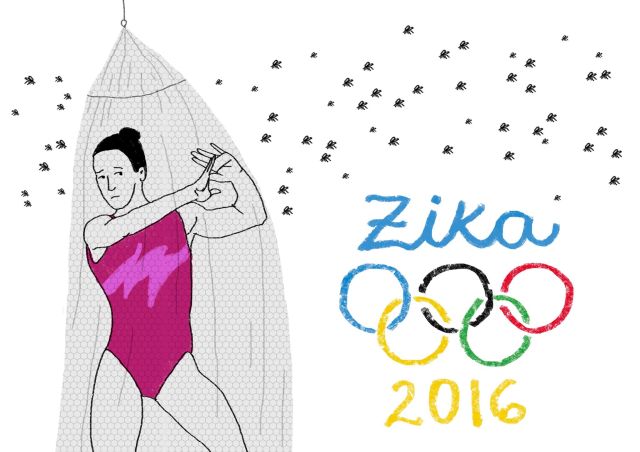
With Brazil already swarming with Zika-loaded mosquitoes, hosting 500,000 foreign athletes and spectators for the 2016 Olympic games there in August poses unnecessary health risks and is downright “unethical,” according to an international group of 150 health experts.
In an open letter to Margaret Chan, the Director-General of the World Health Organization, the group strongly urged that the games be moved or postponed.
The health experts appealed to WHO, a specialized agency within the United Nations, because it has a well-established partnership with the International Olympic Committee. The partnership, which was affirmed most recently in 2010, is primarily aimed at coordinating the two groups’s efforts to promote healthy lifestyles, such as through physical activity campaigns and making Olympic games tobacco-free.
But the health experts see the partnership as conflict of interest. In the letter’s appendix, the authors accuse WHO of having an “overly close relationship” with the IOC. They cite statements from WHO’s executive director that were supportive of the games just days after the agency declared Zika a global public health emergency.
“WHO cannot credibly assess the public health risks of Zika and the Olympics when it sets neutrality aside,” the authors wrote.
And the risks to public health are great, they argue in the letter. Athletes and attendees will be directly exposed to mosquitoes that can carry the virus. Moreover, many will return to their home countries during active mosquito season, which may increase the risk of Zika spreading to other countries following the games. The virus can also be sexually transmitted.
The strain of Zika virus currently circulating in Brazil typically does not cause serious illness in adults. Symptoms are often mild and flu-like, if noticed at all. However, in rare cases it can trigger paralyzing conditions, such as Guillain-Barré syndrome. And in pregnant women, Zika poses significant risks to fetuses, including microcephaly, a birth defect marked by abnormally small and malformed brains and skulls.
In light of the public health threat, the games are not “too big to fail,” the authors argue.
WHO and US Centers for Disease Control and Prevention, however, disagree that the games pose a threat to public health. In a statement released Friday, WHO wrote: “Based on current assessment, cancelling or changing the location of the 2016 Olympics will not significantly alter the international spread of Zika virus.”
The CDC backs WHO’s stance to give the Rio 2016 games a green light. In an interview with the BBC, CDC Director Tom Frieden argued that although pregnant women should avoid travel and men returning from the games should practice safe sex, there’s no reason why the games shouldn’t carry on as planned. The fear that the games could spread Zika further, he said, is unfounded. “The Olympics are a tiny fraction of all travel,” he said. “There is global travel. We’re not going to change that.” What’s needed, he added, are systems in place to find and stop health threats where they emerge.



